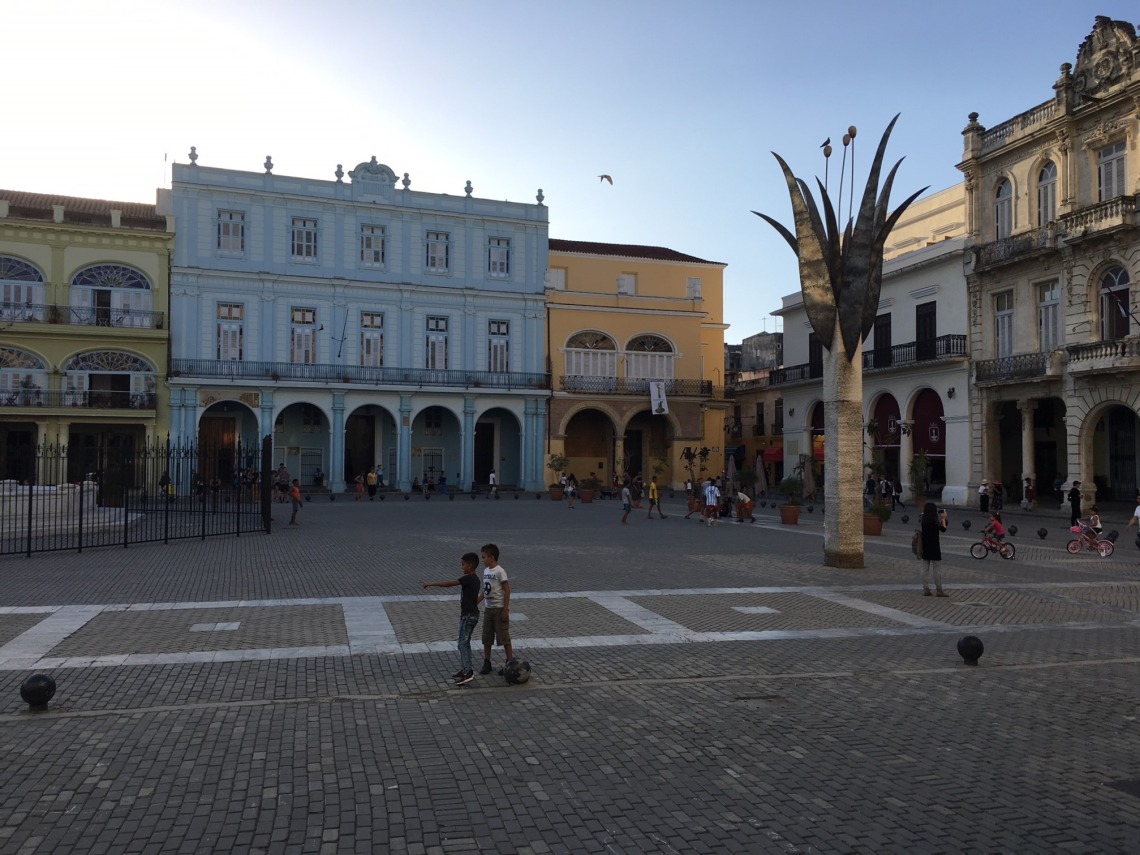UA Makes Connections in Cuba

The University of Arizona is exploring intersecting interests of U.S. and Cuban scholars following the Congreso Universidad Cuban International Education Conference in Havana, held during the spring semester of 2018.
The UA was the only university in the state of Arizona to participate.
Dr. Dale LaFleur, Senior Director of International Partnerships with the Office of Global Initiatives, attended with a delegation from the Institute of International Education, better known as IIE.
The White House recently tightened regulations on U.S. citizens visiting Cuba, requiring those with educational visas to travel as part of a larger group.
“The scholars I met in Cuba were encouraged by the presence of our delegation and they showed interest in collaborations if we can work through barriers related to mobility,” said Dr. LaFleur. “We’re thinking outside the box, looking at ways to connect virtually through joint research projects and publications.”
Exploring Scholarly Similarities
Dr. LaFleur connected with Cuban scholars who share interests with the UA in terms of agriculture, water sustainability, mining, engineering, and entrepreneurship. She plans to facilitate connections between these scholars and UA faculty members in respective fields.
“Hospitality was the biggest entrepreneurial sector I observed during the visit,” she said. “The people I met are interested in entrepreneurial advancements, but also want to stay true to their rich culture and heritage. It’s a delicate balance.”
Dr. LaFleur also noted the importance of education in Cuba and the potential for scholarly collaborations in this area.
“Education is made readily available to all members of society in Cuba; therefore, I think partnering with Cuban institutions of higher education through research and training are some of the most tangible ways that students and scholars in Cuba and the U.S. can collaborate.”
Promoting Bilateral Diplomacy
In addition to Conference activities, the IIE delegation met with U.S. Embassy officials in Havana to advocate for partnerships between U.S. and Cuban institutions. The U.S. reopened its embassy in Havana in 2015 after a diplomatic standstill of nearly 55 years.
“This is a critical moment for academic cooperation between the U.S. and Cuba,” said Clare Overmann, Head of Higher Education Initiatives at IIE. “This delegation aimed to foster and explore opportunities for academic partnership, as well as demonstrate the importance of international academic collaboration despite challenges.”
Tracking Study Abroad to Cuba
International education experts will look carefully in the coming months to see if the current political climate will affect study abroad to Cuba. The latest data available in this space was reported prior to Obama-era rollbacks.
According to IIE, Cuba became one of the top 25 destinations for U.S. study abroad students for the first time in the 2015-16 academic year. Roughly 4,000 U.S. students studied in Cuba during that time frame, compared to nearly 1,500 in 2011-12.
UA students have the opportunity to study abroad in Havana during the “Contemporary Cuba: Collective Visions” program run through the College of Social and Behavioral Sciences.
The Program, created in 2013, examines Cuba's recent history and contemporary processes of change and continuity, focusing on environmental, political, and socioeconomic transformations.
Continuing a Commitment
Participation in the delegation to Cuba stemmed from a larger IIE initiative, the International Academic Partnership Program, which fosters partnerships between colleges and universities in the U.S. and the world.
“The latest visit to Havana is part of an ongoing discussions between the UA and higher education institutions in Cuba,” said Dr. LaFleur. “Colleagues from the Office of Global Initiatives have participated in the International Academic Partnership Program to Cuba in the past and we remain committed to developing future collaboration between scholars in these two countries.”
The following U.S. institutions participated in the IIE delegation:
- College of Coastal Georgia
- Columbia University
- Indiana University
- Northern Kentucky University
- Rutgers, The State University of New Jersey
- University of Tampa
- University of Arizona
- University of California, San Diego
- University of Massachusetts, Amherst
- University of Richmond
For more information about this visit or potential collaborations with Cuban institutions, please contact Dr. Dale LaFleur at dlafleur@email.arizona.edu.

